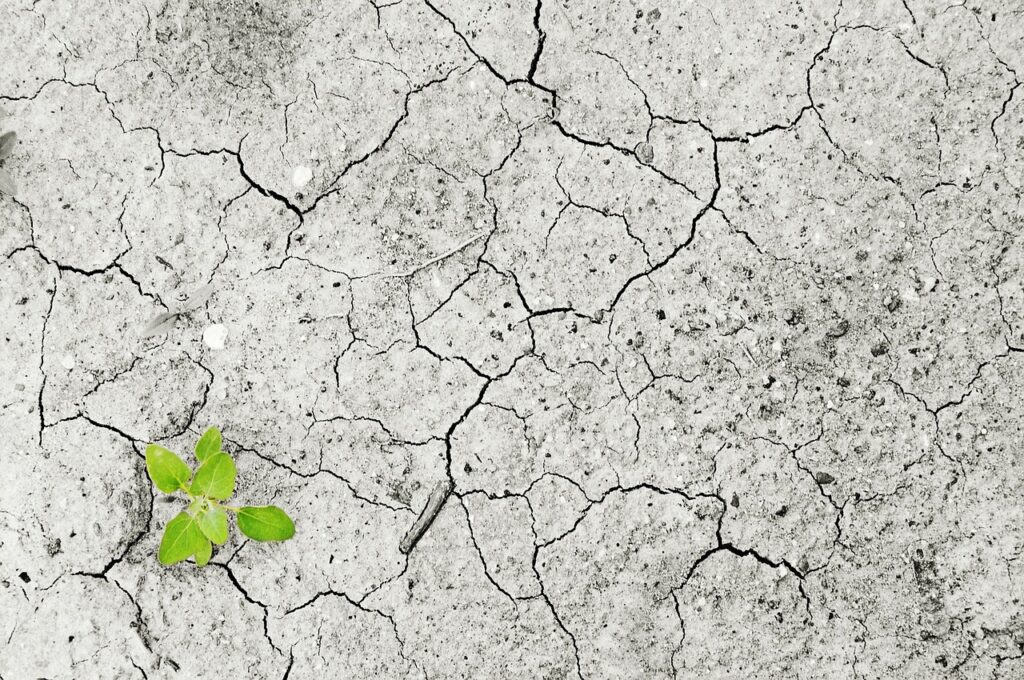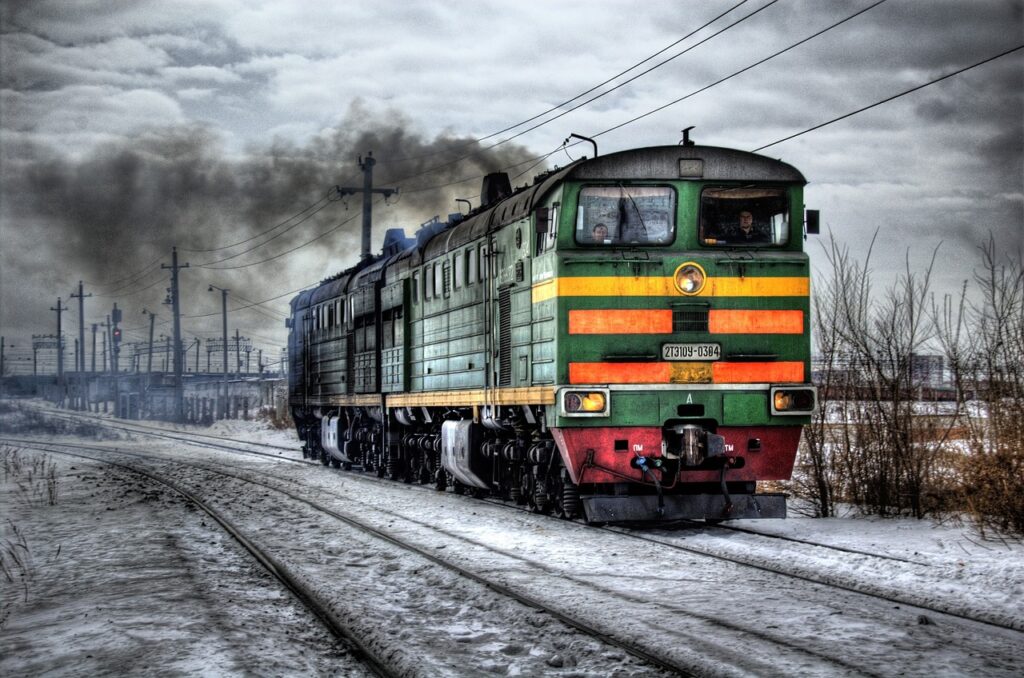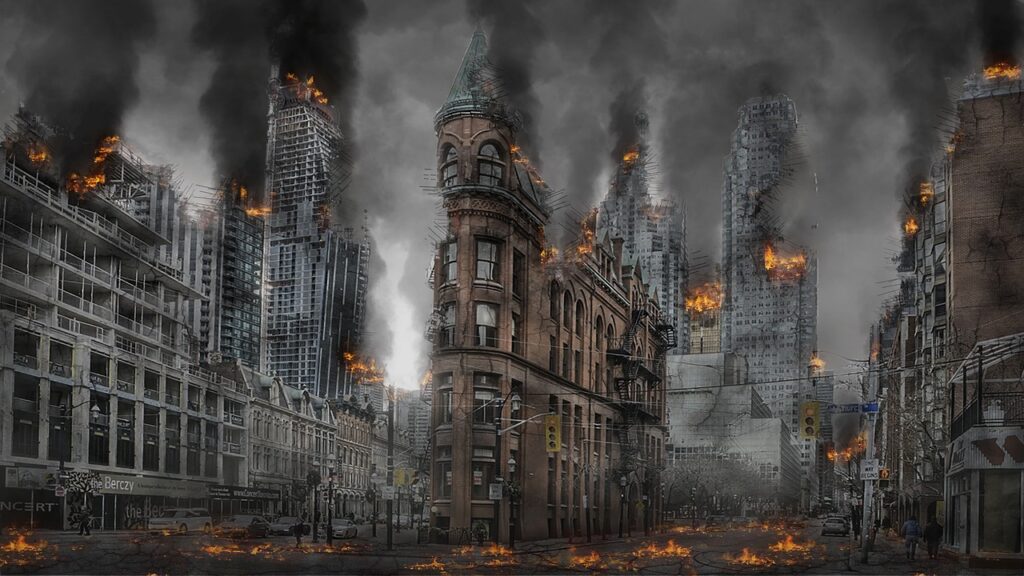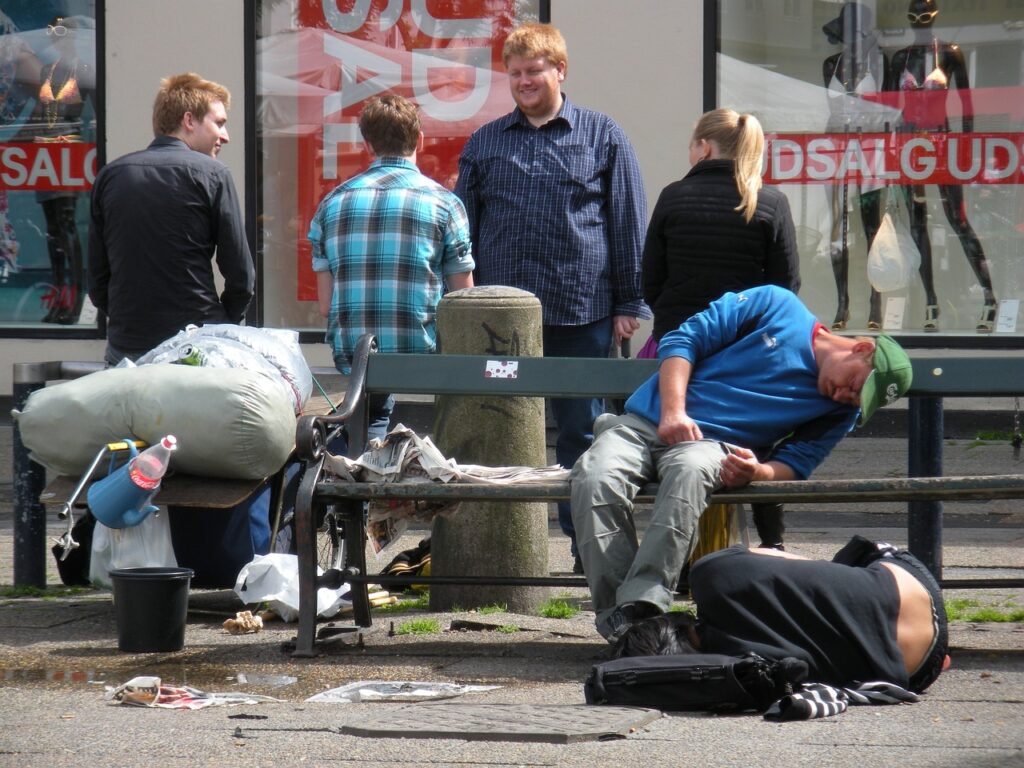
Imagine a world where no one goes to work, where all economic activities cease, and the global workforce takes an indefinite pause. It’s a scenario that might seem unimaginable, but exploring its potential consequences is very much thought-provoking.
In this comprehensive article, we will delve into the hypothetical scenario of what would happen if everyone stopped working, both for a single day and for an extended period. We’ll cover the economic repercussions, the breakdown of the economic system, the role of money, workforce dynamics, the loss of meaning, the rise of drug-related issues, the need for fundamental changes in the world system, food shortages, healthcare challenges, transportation problems, the impact on essential utilities like electricity and water supply, and the potential for a self-sufficient society based on agriculture and local production.
Note: We’ve written extensively about similar topic. Namely, we explored the topic of “What would happen if everyone stopped spending money”. Some consequences would be the same as if everyone stopped working.
Everyone Stopped Working: Returning Back to Agriculture and Self-Sufficiency?

Before we contemplate the survival of society in a world without traditional work, let’s explore the possibility of a self-sufficient society. In this scenario, individuals would primarily engage in agriculture and self-production, relying on their own efforts to produce food, goods, and services.
Agriculture as the Backbone
Agriculture has been the backbone of human civilization for millennia. In a world without traditional employment, individuals and communities might turn to farming and cultivation to sustain themselves. Growing their own food would not only provide a means of sustenance but also foster a deeper connection to the land and the environment.
Nonetheless, this would take long long time. Namely, many people today have no idea how to grow corps or farm animals. Needles to say, billions of people would be completely lost and helpless.
Self-Production of Goods
In addition to agriculture, people might rediscover traditional crafts and skills. Communities could become hubs of craftsmanship, producing everything from clothing and furniture to tools and machinery locally. This shift could lead to a renaissance of craftsmanship and creativity.
However, as mentioned in paragraph above, it would take rather long time for people to re-learn those skills.
Local Trade
Without a global economy driven by traditional work, local exchange and trade systems might emerge. Communities would rely on each other for goods and services, fostering strong social bonds and interdependence. The concept of money could become less relevant as people would exchange what they produce directly, leading to a more decentralized and community-focused way of life.
A Sustainable Future
This self-sufficient approach to life could also have positive environmental implications. With a reduced emphasis on mass production and consumerism, communities might prioritize sustainable practices and resource conservation. This shift could contribute to a healthier planet and a more balanced relationship between humans and nature.
But would that really work like that without significant consequences and overall chaos?
Let’s first explore economic consequences.
The Economic Consequences

So, let’s now turn our attention to the immediate economic consequences of everyone stopping work. If everyone were to stop working, the world economy would grind to a halt. No goods or services would be produced, leading to a sudden and severe recession. Businesses would cease operations, and unemployment would skyrocket. Stock markets would crash, and financial markets would be in turmoil. The global economy is intricately interconnected, so such a massive disruption would send shockwaves through all industries and sectors.
The Breakdown of the Economic System
Without people working and businesses operating, the economic system would break down. Money, which serves as a medium of exchange, would become almost meaningless (see Non-monetary economy). People would have money, but there would be nothing to buy or trade it for. This would lead to a loss of confidence in the monetary system and potentially hyperinflation if the government attempted to print more money to stimulate the economy.
Recommendation: Moneyless Society is a book that explores how capitalism throttles Earth's capacity to sustain life and undermines our deep longing to live in peace and prosperity. Fortunately, it also provides a blueprint for innovative thinking and new structures to replace our outmoded monetary system. In short, Moneyless Society illuminates just how much our lives and those of future generations could improve with a new kind of freedom: freedom from money.
Basically, if everybody stopped working – economic system wouldn’t exist. Full stop. And without economy and money, billions of people would be completely lost, having no system on which they can rely to buy food and necessary items for survival.
Loss of Meaning and Purpose

Work often provides individuals with a sense of purpose and meaning in life. The absence of work could lead to widespread feelings of aimlessness and depression. People thrive when they have goals and responsibilities, and without them, mental health problems might surge.
People would need to find different ways to spend their 24 hours in a day. Many people today are completely lost in their 9-5 jobs and they walk around like programmed zombies. Without this 9-5 “program” they would loose all the meaning in the world. Many people would actually die solely because of this. Namely, many studies have been done on links between early retirement and mortality. And the studies show that big percentage of people completely loose sense of meaning and purpose without “standard” job, and this leads to depression, illnesses and many other negative things.
And this is the problem with today’s society. People don’t have any meaning or purpose besides their (in many cases), meaningless jobs. Purpose should be sought somewhere else and not only in day-to-day job. Well, in most cases. Because there really are jobs that are full of purpose and meaning. But those are few compared to stressful and dull jobs that only exists for the purpose of profit.
Having said that – loss of meaning and purpose could lead to additional problems. Drug related problems.
The Rise of Drug-Related Issues
With the loss of work and meaning, there’s a higher likelihood of people turning to drugs and other vices as a way to cope with their circumstances. Substance abuse and addiction rates could skyrocket, posing significant health and social challenges.
Food Shortages

The global food supply chain heavily relies on a functioning workforce. If everyone stopped working, food production, distribution, and retail would all come to a standstill. This could lead to widespread food shortages, which would particularly impact vulnerable populations and exacerbate hunger and malnutrition.
Imagine if everyone stopped working just for one week. Billions of people wouldn’t have food on their table because they wouldn’t be able to go to the grocery stores. Billions of people are going to grocery stores multiple times per week (even per day), to get food and other necessary items.
If everybody stopped working for a week whole food chain would be broken, thus leading to complete mayhem and chaos on the streets.
Medicinal Problems in a World Without Work

In a hypothetical scenario where everyone stops working, the healthcare sector would face immense challenges, leading to a range of critical medicinal problems. The intricate web of healthcare services, facilities, and professionals relies heavily on a functioning workforce to provide adequate care to the population. Here are some key issues that would arise:
1. Shortages of Healthcare Workers: With the cessation of work, many healthcare professionals, including doctors, nurses, and support staff, would be unable to perform their duties. Hospitals and medical facilities would be completely understaffed, leading to zero treatment and patient care.
2. Disruption of Medical Supply Chains: The production and distribution of essential medical supplies, including medications, medical equipment, and personal protective gear, would be disrupted. This would result in critical shortages of vital supplies, compromising patient care and safety. In short – many people who need critical medicine for survival – would die in a matter of days or weeks.
3. Challenges in Treating Chronic Conditions: Patients with chronic illnesses who rely on regular medical care and prescription medications would face significant challenges. Without access to healthcare services and medications, their conditions could worsen, leading to complications and even death.
4. Mental Health Crisis: The loss of work and income, combined with the uncertainty and upheaval caused by a world without work, would likely contribute to a mental health crisis. The demand for mental health services and counseling would surge, but the availability of these services would be limited.
5. Vulnerable Populations at Risk: Vulnerable populations, such as the elderly and those with pre-existing health conditions, would be particularly at risk. They would struggle to access necessary medical care and medications, increasing their susceptibility to health complications.
6. Impact on Research and Development: The halt in work would disrupt ongoing medical research and development efforts. Progress in finding cures, vaccines, and treatments for various diseases would be delayed (or completely stopped), impacting global health outcomes in the long run.
7. Public Health Emergencies: The overall disruption of healthcare systems would lead to the emergence of public health emergencies, including disease outbreaks and epidemics that would be challenging to contain and manage.
Ultimately, the scenario of everyone stopping work would lead to health crisis never seen before on this planet.
This leads us to another big potential problem in this hypothetical scenario – The Transportation!
Transportational Problems in a World Without Work

In a hypothetical scenario where everyone stops working, transportational problems would emerge as one of the critical challenges, affecting not only personal mobility but also the movement of goods and services. The cessation of work would disrupt transportation networks and infrastructure in several ways:
1. Public Transportation Shutdown: Public transportation systems, including buses, trains, subways, trams, and ferries, would come to a halt. This would strand millions of people who rely on public transit for their daily commutes and errands.
2. Disruption of Supply Chains: Transportation is the backbone of global supply chains. A cessation of work would disrupt the flow of goods, raw materials, and essential supplies, leading to shortages of everyday products and critical items like food and medicine.
3. Transportation Infrastructure Maintenance: Transportation infrastructure, such as roads, bridges, airports, and ports, relies on a workforce for maintenance and repair. Without workers, these critical systems would completely deteriorate.
4. Essential Services and Emergency Response: Emergency services, such as ambulances and fire departments, rely on transportation to provide timely assistance. Delays in reaching emergency scenes would have life-threatening consequences for many people.
5. Environmental Implications: Reduced transportation would lead to a decrease in emissions and pollution. We’ve somehow witnessed similar scenario during COVID19 crisis when traffic was significantly reduced. Perhaps in this scenario of “no work” we would see how real and immediate consequences of human activities are for our planet.
Problems with Electricity and Water Supply

The operation and maintenance of essential infrastructure, such as power plants and water treatment facilities, depend on a functioning workforce. Without people working in these sectors, electricity and water supply could become erratic, leading to blackouts and water shortages.
For example, by WorldBank.org – around 56% of the world’s population – 4.4 billion inhabitants – live in cities. Those people rely on functioning electricity and water supply. If everybody stopped working then electricity and water supply would also stop working leading to unimaginable and immediate consequences.
Note: We’ve written a long article on topic “What would happen to the world without electricity?”, where we’ve covered in details consequences of no electricity in the world. And consequences would be devastating!
Cities Becoming Ghost Towns
As people abandon their jobs and cities, urban centers could become ghost towns. The busy streets, office buildings, and commercial districts would empty out, leaving behind eerie echoes of a once-vibrant life. Conversely, rural areas and villages would see an influx of people seeking a simpler life closer to nature, leading to population shifts and changes in local economies.
A Day Without Work vs. Permanent Stoppage

Now, let’s consider the difference between a single day without work and a permanent stoppage. A day without work, like a global strike, could be a powerful demonstration of the importance of workers and their demands. However, it would have limited long-term consequences, as the global economy would likely bounce back relatively quickly.
On the other hand, a permanent stoppage of work would have far-reaching, irreversible effects. It would force humanity to reconsider the very foundations of society, economics, and human existence. The transition to a world without work would require a complete overhaul of how resources are distributed, how people find purpose, and how society functions as a whole.
The Need to Change the World System Fundamentally
The scenario of everyone stopping work could serve as a wake-up call for society to rethink its fundamental values and systems. It might push humanity to explore alternative economic models and social structures that prioritize well-being over constant growth and consumption. A reevaluation of capitalism, resource allocation, and wealth distribution may become necessary.
…and this leads us to the most important question…
Could Society Survive the Complete Stoppage of Work?

The idea of everyone stopping work, whether for a single day or indefinitely, raises profound questions about the resilience of society as we know it. While the consequences would be dreadful, it’s worth contemplating whether such a scenario would entirely destroy society or if it could lead to transformative changes.
In all likelihood, society would not collapse entirely. Instead, it might evolve in unexpected ways. Humans have shown remarkable adaptability throughout history, and in the face of such a crisis, they might find innovative solutions to rebuild their lives and communities. New economic models, social systems, and ways of finding meaning could emerge. It might even inspire a renaissance of creativity, exploration, and collaboration.
However, the path to this potential new society would undoubtedly be challenging and filled with hardships. It would require individuals, communities, and nations to work together to address the multifaceted issues that would arise. The key to survival and progress would be adaptability, resourcefulness, and a collective commitment to finding solutions to the unique challenges presented by a world without work.
In conclusion, while the complete stoppage of work would undoubtedly have severe and far-reaching consequences, it might not necessarily destroy society as we know it.
Instead, it could serve as a catalyst for profound transformations, pushing humanity to reevaluate its values, systems, and priorities.
Note: If you enjoyed this article you might also enjoy following articles on topic of “What would happen if”:
- What Would Happen If Everyone Stopped Spending Money?
- What If Everyone Stopped Paying Taxes?
- What would happen if Moon disappeared?
- What Would Happen If The Moon Exploded
- What Would Happen If Jupiter Disappeared?
- What Would Happen If You Fell Into A Black Hole?
- What Would Happen If The Moon Exploded
- What Would Happen If The Earth Stopped Spinning?
- What If Everyone On Earth Jumped At The Same Time?
- What would happen if water disappeared on Earth?
- What would happen if lying never existed?
- What would happen if gravity suddenly disappeared?
- What would happen if everyone stopped having children?
- What would happen if mosquitoes went extinct?
- …and many more.




















